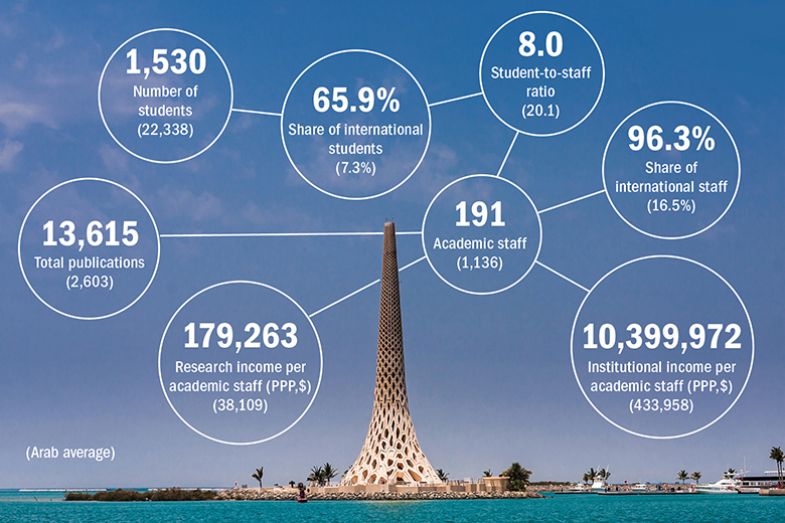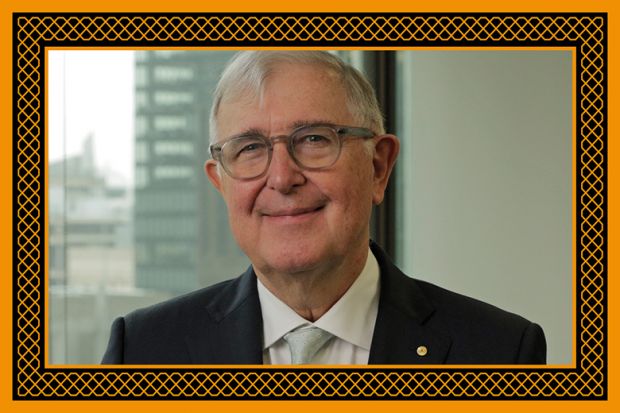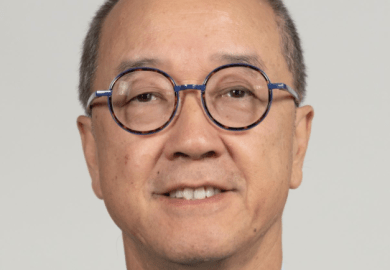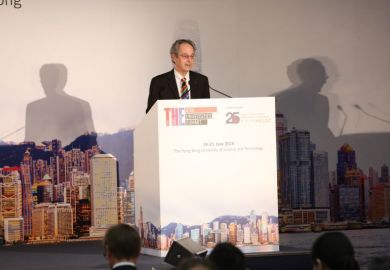Browse the full results of the Arab University Rankings 2024
There is no more exciting place in the world right now than Saudi Arabia, where rapid transformation across sectors is reshaping the kingdom’s future. As I approach the end of my first semester as president of King Abdullah University of Science and Technology (KAUST), I find myself reflecting on the journey that brought me here and what lies ahead. After two decades as an academic neurologist focused on disease pathophysiology, I transitioned into leadership roles in health and higher education across Australia and the UK. Now, I have the privilege of leading KAUST, a research-intensive institution that is closely aligned with Saudi Arabia’s ambitious vision.
Over the past 20 years, I’ve served as president of Monash University and King’s College London, and held leadership roles at UCL, stepping into each institution at pivotal moments. I guided them through transformative periods, working to enhance both their academic output and societal relevance. My goal was always to ensure these institutions became not only academically stronger but more impactful on the communities they serve. Now, in Saudi Arabia, the stakes – and the possibilities – are even greater.
Our world is confronting challenges on local, national and global scales. More than ever, I am convinced that the university sector – with its depth of talent in staff and students – plays a critical, if not the most crucial, role in addressing the pressing issues our planet faces. Together with Charles Clarke, former UK education and home secretary, I co-authored The University Challenge: Changing Universities in a Changing World, in which we argued that for universities to remain true to their higher purpose, they must accelerate their efforts – not just by doing things differently, but by doing different things. This belief underpins my decision to take on a significant leadership role at a university in Saudi Arabia.
The Kingdom of Saudi Arabia is undergoing massive change at an almost unprecedented speed, diversifying its economy away from oil and driving sociological and cultural shifts that are reshaping every facet of society. In recent years, the number of women in the workforce has risen to nearly 40 per cent, life expectancy has significantly increased, and in the streets of Jeddah – near KAUST – one can now see many women driving, alongside a vibrant restaurant scene reminiscent of Dubai. These are just a few examples of the sweeping changes transforming the nation.
This transformation is accompanied by some of the world’s largest infrastructure projects, all centred around sustainability in its broadest sense. One such project is the world’s largest coral restoration initiative, a significant endeavour that resonates with me as an Australian, given the close collaboration with colleagues working to protect the Great Barrier Reef. And this is just a snapshot of the remarkable work that is under way with the aim of shaping the kingdom’s future.
Possibly the most exciting thing happening in Saudi Arabia at the moment is the energy generated by its youthful population, which is fully engaged in transforming the nation. Some two-thirds of Saudi Arabians are under 35 years of age, and there is a huge appetite for tertiary education, and the acquisition of the skill set the nation needs for its transformation. The work ethic of young people of all genders is high, and the energy manifested in the country's transformation is very impressive indeed.
KAUST in numbers

Why did I come to KAUST? For those unfamiliar with its journey, KAUST is an extraordinary university. Only 15 years old, it was endowed with significant resources by the late King Abdullah, with the mission to develop one of the world’s leading research-intensive universities in Saudi Arabia, using Caltech as a model. Its success has been remarkable. KAUST has attracted an international faculty, boasting a citation rate per faculty member that leads the world, along with outstanding students.
While KAUST has always aligned with the ambitions of the kingdom, it is now moving into even closer alignment as the practical impact of its research becomes increasingly evident in both major government projects and private industry. It is developing a generation of leaders for Saudi Arabia, much like Oxbridge and Ivy League universities do for their countries, complementing the significant changes in the Saudi university sector that have been unfolding for years and are now having a real impact. KAUST, a jewel in the crown of the nation’s university ecosystem, complements the achievements of several other leading universities in the kingdom.
The Saudi government is committed to ensuring the country plays a central role in both the Fourth and Fifth Industrial Revolutions, with the kingdom already emerging as a leader in future technologies. This ambition is clearly outlined in Vision 2030, a vision that is steadily being realised. KAUST holds a privileged and exciting position in supporting Saudi Arabia on this transformative journey.
I am KAUST’s fourth president, following Tony Chan, Jean-Lou Chameau and Shih Choon Fong, each of whom played a critical role in bringing the university to its current level of excellence in just 15 years. Standing on the shoulders of these giants, I see it as a wonderful opportunity to help KAUST continue its remarkable trajectory. KAUST has already proven that a world-leading research university can be built rapidly outside Europe and North America, and it is a tremendous privilege for me to contribute to this ongoing success.
Sir Ed Byrne is president of King Abdullah University of Science and Technology (KAUST).
Register to continue
Why register?
- Registration is free and only takes a moment
- Once registered, you can read 3 articles a month
- Sign up for our newsletter
Subscribe
Or subscribe for unlimited access to:
- Unlimited access to news, views, insights & reviews
- Digital editions
- Digital access to THE’s university and college rankings analysis
Already registered or a current subscriber?




